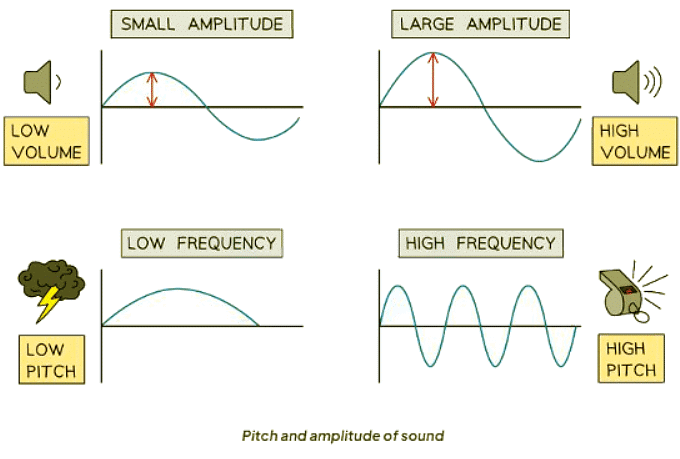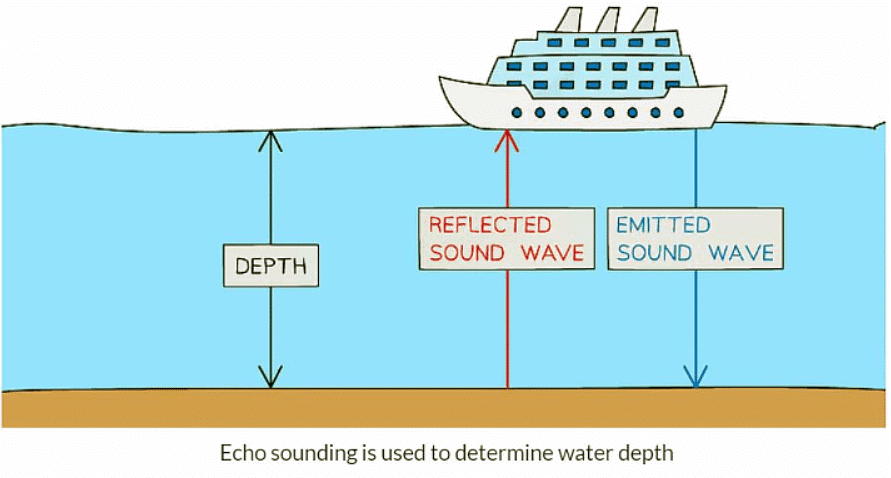Class 10 Exam > Class 10 Notes > Physics for GCSE/IGCSE > Effects of Sound Waves
Effects of Sound Waves | Physics for GCSE/IGCSE - Class 10 PDF Download
Pitch & Loudness
- The pitch of a sound is determined by its frequency. Sounds with a high pitch correspond to a high frequency (short wavelength), while sounds with a low pitch correspond to a low frequency (long wavelength).
- The volume of a sound is influenced by the amplitude of its wave. Sounds with a large amplitude result in a high volume, while sounds with a small amplitude lead to a low volume.

Echoes
- Sound waves bounce off solid surfaces, a phenomenon known as reflection, creating what is termed an echo.
- Echo sounding finds application in measuring depth or identifying underwater objects.
- A sound wave is emitted from the water's surface, subsequently reflecting off the ocean floor.
- The time elapsed until the wave returns aids in determining the water's depth.
- The distance traveled by the wave equals twice the ocean's depth, encompassing both the distance to the ocean floor and the return journey.

Question for Effects of Sound WavesTry yourself: What determines the pitch of a sound?View Solution
The document Effects of Sound Waves | Physics for GCSE/IGCSE - Class 10 is a part of the Class 10 Course Physics for GCSE/IGCSE.
All you need of Class 10 at this link: Class 10
|
129 videos|148 docs|35 tests
|
FAQs on Effects of Sound Waves - Physics for GCSE/IGCSE - Class 10
| 1. What is the difference between pitch and loudness in sound waves? |  |
Ans. Pitch refers to how high or low a sound is perceived, while loudness relates to the intensity or volume of the sound.
| 2. How do echoes affect our perception of sound waves? |  |
Ans. Echoes are the reflection of sound waves off surfaces, which can impact the clarity and timing of the original sound.
| 3. How do sound waves travel through different mediums? |  |
Ans. Sound waves travel faster through solids than liquids or gases due to the molecules being closer together in solids.
| 4. Can the frequency of a sound wave affect its pitch? |  |
Ans. Yes, the frequency of a sound wave directly influences the pitch we perceive, with higher frequencies corresponding to higher pitches.
| 5. How does the amplitude of a sound wave relate to its loudness? |  |
Ans. The amplitude of a sound wave determines its loudness, with greater amplitudes resulting in louder sounds.
Related Searches















